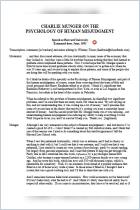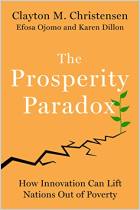
Article
Why India Is Ready for a Universal Basic Income
How It Could Cut Poverty and Bureaucracy
Foreign Affairs,
2017
Read or listen offline
auto-generated audio
1×
auto-generated audio
Recommendation
It may not come as a surprise that wealthy countries like Finland, Canada and Switzerland have flirted with a universal basic income, but perhaps you didn’t know that India – where approximately 30% of the population lives below the poverty line – has, too. Economist Shamika Ravi leverages her expertise in development in India to argue that the country should replace its ineffective, corrupt welfare programs with a base income for all its citizens. getAbstract recommends this unexpected but well-reasoned argument to all invested in solutions to poverty in India and beyond.
Take-Aways
About the Author
Shamika Ravi is an economist who specializes in India’s development and a senior fellow at the Brookings Institute.
By the same author
Learners who read this summary also read
Book
Book

















Comment on this summary or Start Discussion